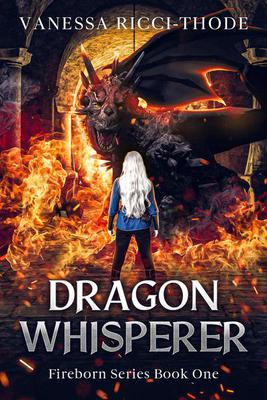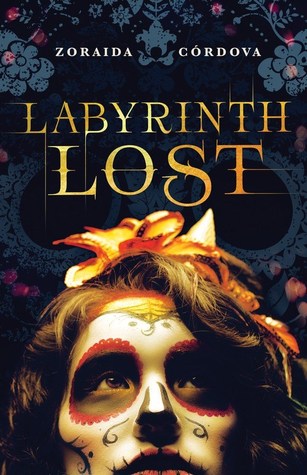Monday, May 29, 2023
MMGM: The Grace of Wild Things, by Heather Fawcett
Thursday, November 11, 2021
Bad Witch Burning, by Jessica Lewis
This is a debut novel?? Unbelievably tight, emotion-packed writing, gripping plot, compelling characters. Just, wow.
There are some books where characters do stupid things and you roll your eyes and throw the book across the room. Then there are books like Bad Witch Burning, where you spend the whole time saying, "Noooo! Don't do it, Katrell, you know this won't end well!" but you completely understand why she's making these really bad choices and you think you might even make the same choices in her shoes.Lewis depicts with searing, heart-wrenching intensity the physical, mental and emotional toll of poverty. When Katrell finds out she can raise the dead, and people will pay her for it, we feel her utter conviction that There Is No Way Out for her and of course she has to keep performing necromancy despite the terrible consequences. And what interesting consequences: the story is slow-burn creepy and it will surprise you. The pacing of the reveals is particularly well-done.
This is a paranormal book but it isn't about the magic: we don't find out why Katrell has this power, there aren't other witches around, there isn't a magic system. It's a very focused story that uses the horror of the paranormal as a brilliant metaphor for the very real horrors of Katrell's life and the impossible choices she has to make. Lest I scare you off, thinking it's a dismal, depressing read, there are some wonderful characters who are There for Katrell, and Katrell herself is an engaging narrator with attitude to spare. It's a hard book to read, but I couldn't put it down. I loved Katrell to pieces and her journey was fascinating.
Trigger warnings for physical and emotional abuse and violence against a dog.
Wednesday, March 10, 2021
#MarchMagics: The Shepherd's Crown, by Terry Pratchett
I didn't have a particular plan for what to read or re-read this month, but when I went to my library I saw The Shepherd's Crown, and discovered that it is both a fifth and final Tiffany Aching book, and Terry Pratchett's last novel. So it was with both delight and sadness that I began to read it, and both delight and sadness that I finished it.
I adore Tiffany Aching. She's one of my all-time favourite heroines, up there with Sophie Hatter, Jane Eyre, Elisabeth Bennett, Irene from the Invisible Library, Cassandra from Stray, Tess (of the Road), Slate from Clockwork Boys ...* The Shepherd's Crown stays true to her stubborn strength and exasperated compassion. She gets some career advancement, as it were, —which, for a witch, just means more things that have to be done—and rises to the challenge with typical blunt style. "I want to do it my way. Not how the other witches think it should be done." She finds help in surprising places, and there are always the Nac Mac Feegle ready to take on all comers.
The afterword explains that "The Shepherd's Crown has a beginning, a middle and an end, and all the bits in between. Terry wrote all of those. But even so, it was, still, not quite as finished as he would have liked when he died. If Terry had lived longer, he would almost certainly have written more of this book." I read this first, and so was prepared to be disappointed in the book. But it turns out that a not-quite-finished Terry Pratchett book is still far better than the best of most other authors. It's true that this novel felt a little thin, compared to his other books. Less layered. But it is a complete and satisfying story, and it has all of Pratchett's wit and wisdom and gentle understanding of human foibles.
It also has a number of cameos from many of the Discworld novels. I haven't read all of them, so I didn't recognize them all, but it was lovely to see familiar characters show up. It felt very much as though Pratchett was saying goodbye to Discworld. There were some scenes that brought me to tears, because they were well-written and touching but also because I could hear the farewell in them.
I can confidently recommend this book to anyone who loves Pratchett, but you were going to read it anyway, weren't you?! It's also an excellent conclusion to the Tiffany Aching series, and just another excellent book about human nature and goodness and the true source of magic. I am happy to think of the conversations Pratchett and Death are having now, over a game of chess, perhaps, and a glass of something mellow. May we all be able to say, as I'm sure Death said to Terry Pratchett: "YOU HAVE LEFT THE WORLD MUCH BETTER THAN YOU FOUND IT."
*This is turning into an interesting list, possibly worth writing a post about!
Thursday, March 21, 2019
Why do I like Howl's Moving Castle so much?
I just reread the book and then rewatched the Miyazaki animated movie, and they both made me so happy I just had to sit down to analyze what is so wonderful about them. (Illustrations (other than the one from the movie below) are taken from the finalists in the Folio Society's competition to illustrate their edition of Howl's Moving Castle. Aren't they all gorgeous?! (Bigger versions at the link.) The winner is Marie-Alice Harel, and I am putting her illustrated edition on my Christmas wishlist now!)
 |
| Studio Ghibli |
 |
| Katerina Cupova |
 |
| Alejo and Vivian de los Rios |
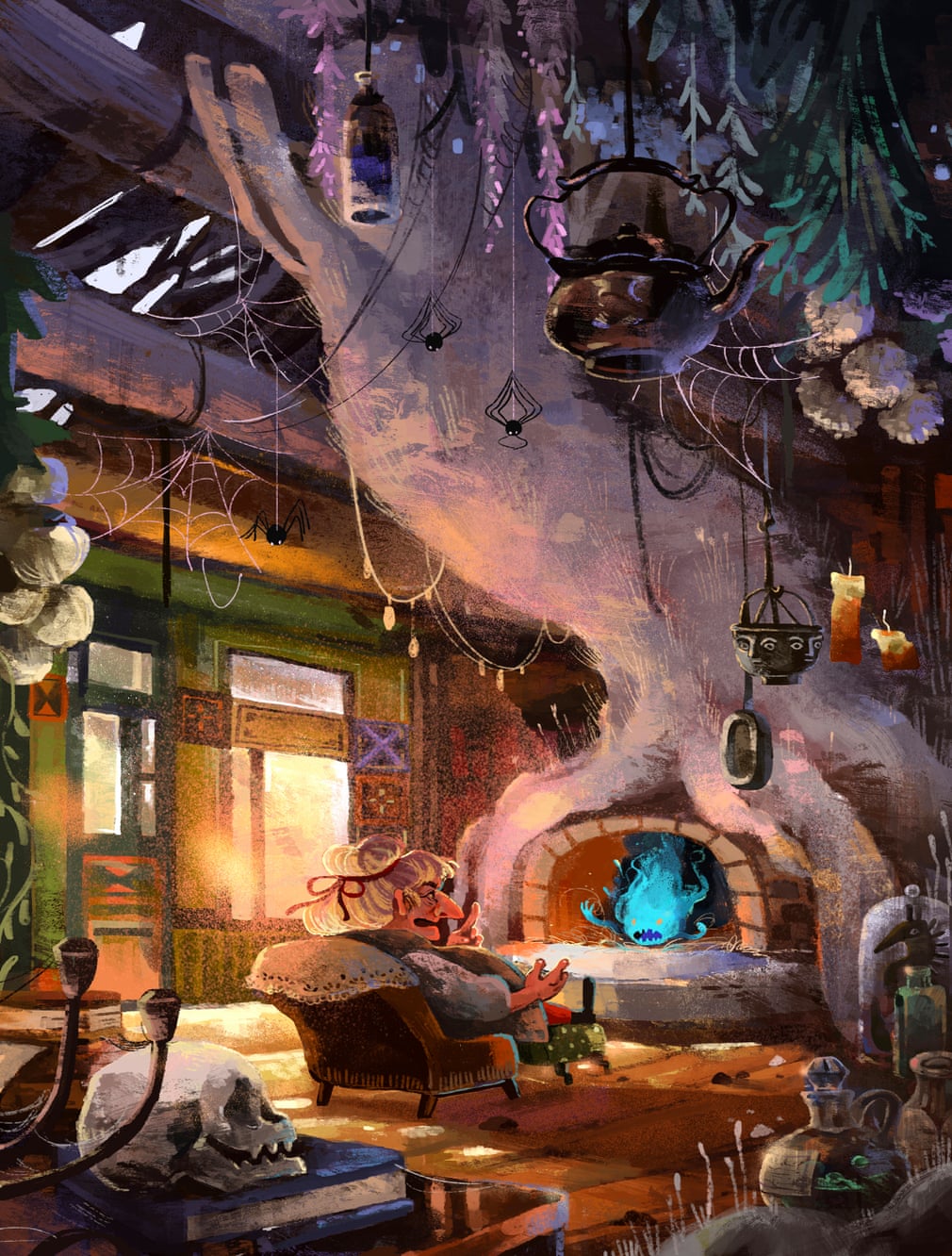 |
| Lulu Chen |
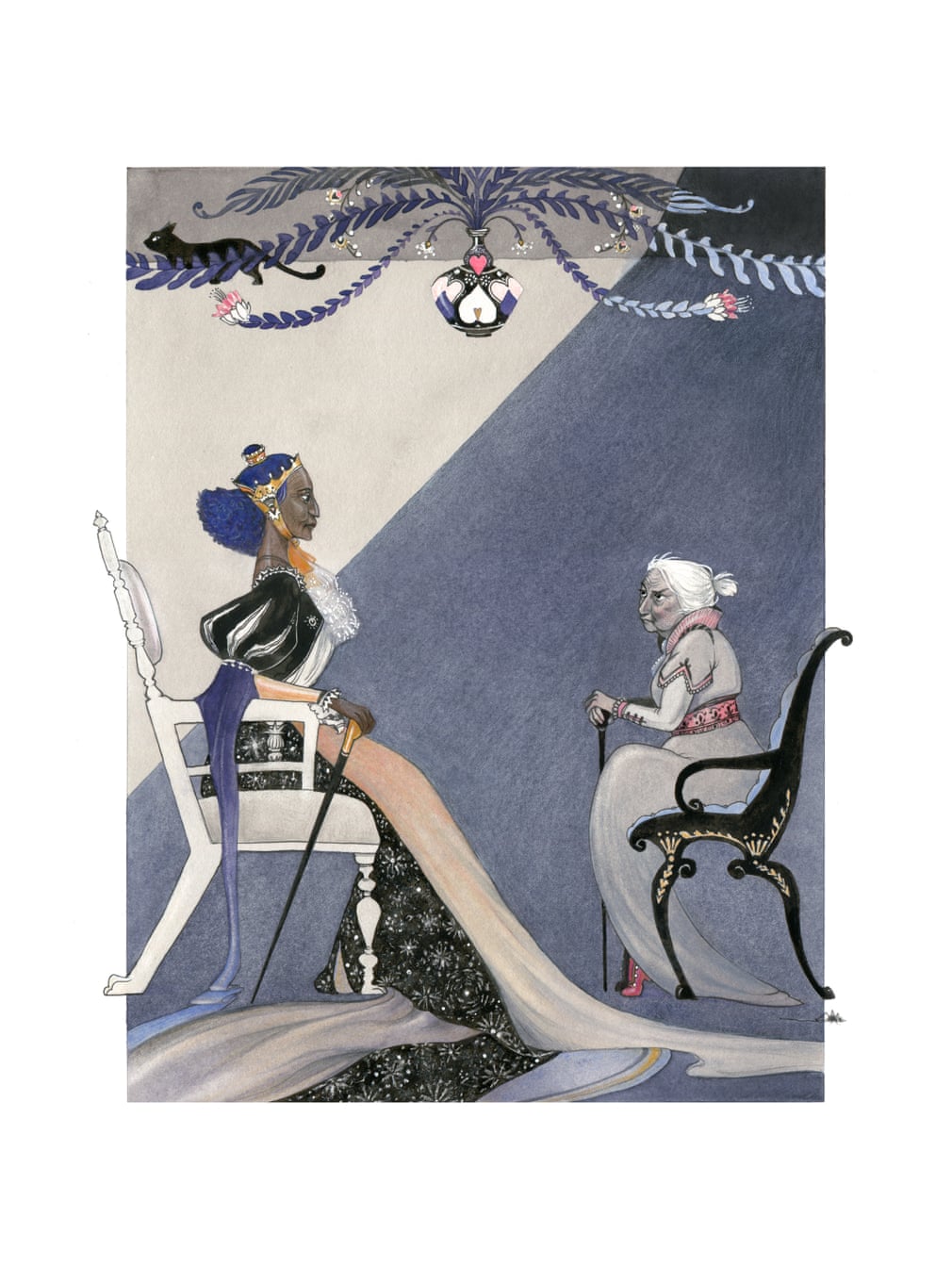 |
| Marie-Alice Harel |
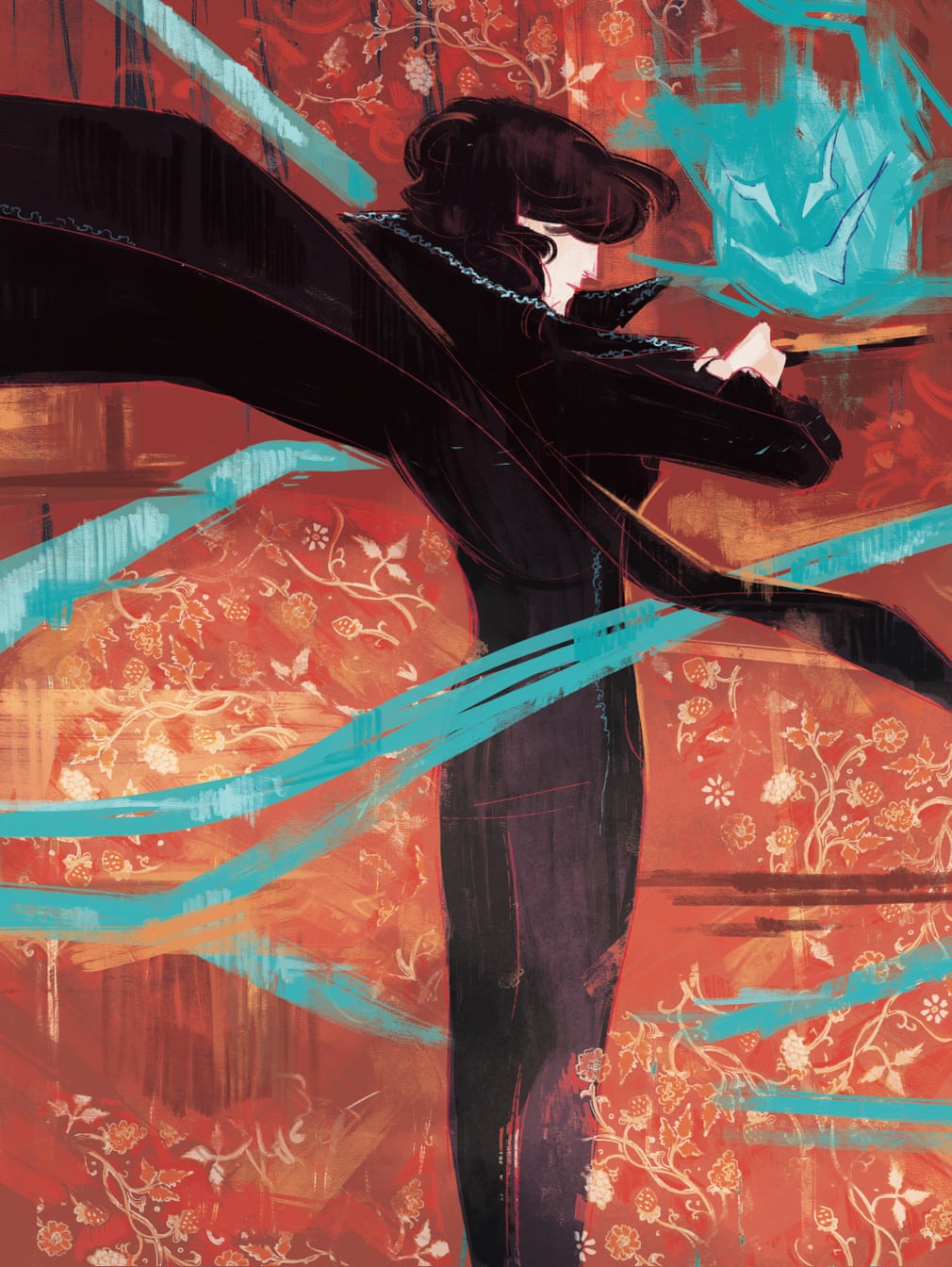 |
| Marina Evlanova |
Tuesday, April 17, 2018
Shadow Twin, by Rachel Neumeier
I'm going to be lazy and cross-post my Goodreads review of the latest Black Dog book, because it should be on my blog, too.
 A bit of an intro: the Black Dog series is a modern paranormal about werewolves, with an interesting take on them: being a Black Dog isn't infectious, it's genetic, and into some Black Dog families are born the Pure, who have magic that can help black dogs control their demon halves. Without the Pure, black dogs are savage hunters who kill without thought. With Pure magic, they can live peaceably with each other and with humans. Dimilioc is a civilized Black Dog house constantly at war with stray black dogs and vampires. Three siblings—Pure Natividad, human Miguel and black dog Alejandro—come seek refuge with Dimilioc when their parents are killed by a particularly nasty black dog pack. Interesting relationship and power dynamics ensue, intercut with exciting magical battles. There's romance, but family is what these books are all about.
A bit of an intro: the Black Dog series is a modern paranormal about werewolves, with an interesting take on them: being a Black Dog isn't infectious, it's genetic, and into some Black Dog families are born the Pure, who have magic that can help black dogs control their demon halves. Without the Pure, black dogs are savage hunters who kill without thought. With Pure magic, they can live peaceably with each other and with humans. Dimilioc is a civilized Black Dog house constantly at war with stray black dogs and vampires. Three siblings—Pure Natividad, human Miguel and black dog Alejandro—come seek refuge with Dimilioc when their parents are killed by a particularly nasty black dog pack. Interesting relationship and power dynamics ensue, intercut with exciting magical battles. There's romance, but family is what these books are all about.There are now three novels and two short-story collections, and the story isn't finished yet (yay!); another short-story collection is coming next. Start at the beginning, and don't neglect the stories, as they contain key plot and character development. (I actually think I like the short stories best, because they're so focussed on characters; the novels are from Natividad, Miguel and Alejandro's POVs, and the short stories allow us into the other characters' heads, so we can fall in love with them, too.)
Here's what I posted on Goodreads about Shadow Twin (no spoilers, but it's a review for those who've read the other books, since you won't want to start with this one):
A great birthday present! [I celebrated by dropping everything and spending my entire day reading this!] Everything you want from a Black Dog book, with a focus on Miguel and Alejandro coming into their own. Some great scenes where Miguel is right about everything, and some great scenes where he isn't! Alejandro develops his relationship with Grayson and establishes more clearly his position in Dimilioc. There are new characters, with all the interesting power dynamics that entails. Colonel Herrod gets a major role. (Justin and Keziah are off-screen for this adventure, sadly.)
The plot of the Black Dog books is always the same—nasty, evil demonic threat appears, black dogs fight back, get almost defeated, and then Natividad comes up with some innovative form of magic to save the day. The magic is always interesting, and follows enough rules so that it isn't just *handwave magical solution*, and Natividad is always fun to watch as she blunders by instinct and ridiculous fearlessness into her latest invention.
But the reason I keep rereading these books is the characters and their interactions. Neumeier does such a good job of exploring power, authority, loyalty, trust, and she makes you care about all the characters so much—the scenes between Ezekiel and Grayson kill me every time, and there's a great one in this book. Also family: it's great to see Natividad and her brothers' unbreakable bond continue, and also for them to begin to feel that Dimilioc is their family now. Yeah, there's the odd throat that gets ripped out or head that gets thrown across a room (that one really deserved it, trust me!), but really this is a book about relationships, and about what it means to be civilized, and to be a family.
Favourite quotation:
Miguel added, "God, I need a bath. And a big cup of coffee." Alejandro frowned at him. "You need twelve hours' sleep and the hearts of your enemies on a plate."
Thursday, April 20, 2017
Summer in Orcus, by T. Kingfisher
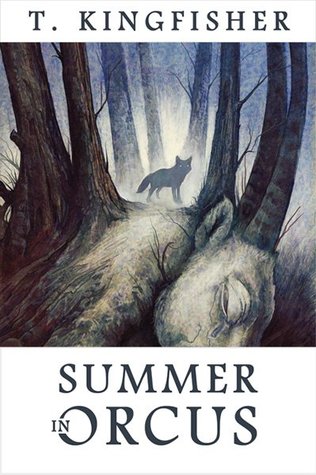 There aren't many books like that, and Ursula Vernon (who is T. Kingfisher when she's writing less easily categorizable books) has written quite a few of them now. The T. Kingfisher stories are often fairy tale retellings, or stories that sound like they could be folk tales. Summer in Orcus is a portal fantasy, but it starts out with Baba Yaga's hut appearing in Summer's back alleyway, so the folk-tale roots are deep and resonant. (And, much like Every Heart a Doorway, but in a different way, Vernon is re-writing the paradigm of the portal fantasy.)
There aren't many books like that, and Ursula Vernon (who is T. Kingfisher when she's writing less easily categorizable books) has written quite a few of them now. The T. Kingfisher stories are often fairy tale retellings, or stories that sound like they could be folk tales. Summer in Orcus is a portal fantasy, but it starts out with Baba Yaga's hut appearing in Summer's back alleyway, so the folk-tale roots are deep and resonant. (And, much like Every Heart a Doorway, but in a different way, Vernon is re-writing the paradigm of the portal fantasy.)Summer in Orcus might start out seeming like a middle-grade book, but it gets darker and deeper as it goes on, and it's just not quite written like a middle-grade book. (Vernon explains why in her very interesting afterword. She was going for a more realistic depiction of what would happen if a 12-year-old was sent into a fantasy world on a quest.) A very sophisticated younger reader could handle it. A reader who understands who Baba Yaga is, and why Summer should be quite afraid of her but can probably trust her. At least, in certain particular instances. (Antelope women, however, are not to be trusted.)
So original, so vividly imagined. I don't want to spoil any of the surprises; some of her ideas made me laugh out loud, they were so weird and funny and yet, perfect. I keep wanting to use that word, because even though this story seems a hodge-podge of crazy fantasy ideas, everything works together into a cohesive, perfect whole. It reminds me of A Face Like Glass, by Frances Hardinge, which is also full of crazy imaginative ideas, but none of them are throwaway; they all end up being important, somehow. Writers who have that kind of vision are really impressive. Also, writers with the knack for humour as truth-telling are infinitely rare and valuable. (She's up there with Terry Pratchett.)
And Summer is a wonderful heroine; incredibly realistic and sympathetic. She's not a hero, but she chooses her path and keeps going even when she really, really wants to go home. She has the weaknesses and strengths of a 12-year-old who might be a little wiser than her years, but doesn't quite know it yet. “It would be a good day for the world if I could not find a child who knew terrible adult things. But I will be a great deal older before that day comes, I think.”
I stayed up late to finish this, and then couldn't sleep, it moved me so strongly. Ursula Vernon is a well-known and acclaimed author, but more people need to discover what she's doing when she's T. Kingfisher.
Creamy chorizo pasta (saute onions and peppers and sliced cured chorizo, add spinach or kale, chopped tomatoes or a bit of tomato paste, pour in cream, serve over a substantial pasta shape like rotini). Delicious comfort food with bite.
Sunday, February 26, 2017
Rest of the Cybils shortlist
Keeper of the Mist, by Rachel Neumeier, is a fairy-tale-type fantasy about a magical kingdom under threat from its magical neighbours. I'm a big fan of Neumeier, so I was thrilled to see this one on the list. It has an engaging heroine: Keri the baker who is suddenly chosen to be the Lady of Nimmira (everyone knew she was the illegitimate daughter of the Lord, but no one expected the magic to descend on her) and has to rise to the occasion. The strength of this book is in the relationships between Keri and her Bookkeeper, Doorkeeper and Timekeeper, who have to figure out how to use their strengths to protect the kingdom, and between Keri and her older brothers, who think they could do a much better job than her but have to work with her and learn to trust her. Friendships and family bonds (and a little bit of romance) in a beautiful and original fantasy setting.
Labyrinth Lost, by Zoraida Córdova, is often called a Latina Alice in Wonderland. It starts in the real world, where Alejandra is about to come into her powers as a bruja. But Alex wants to reject her magic because of its potential for harm. When she disrupts her Death Day ceremony, her family are all whisked away to the magical realm of Los Lagos, and Alejandra has to travel through its strange, dangerous landscape with a boy she doesn't trust in order to rescue them. I really liked the depiction of a multi-generational family, with all the tensions and warmth of a normal family, plus magic to complicate things. Los Lagos is beautiful, surreal and frightening, and the magic is fascinating to me, based as it is on Latin-American mythologies I'm not familiar with. It has a great first line: "The second time I saw my dead aunt Rosaria, she was dancing."
 The Door at the Crossroads, by Zetta Elliot, is a time-travel novel that connects post-9/11 New York with the Civil War era and the draft riots. It's the second book describing Judah and Genna's struggles to find each other after being transported back in time and encountering slavery and the people fighting to end it. It works as excellent historical fiction, highlighting a number of unfamiliar (to me) aspects of the time period (had you ever heard of the free black community called Weeksville? Worth looking up, it's pretty cool!) while being a tense story of modern teens encountering the brutality and humiliation of slavery and the sacrifices of those trying to free them. Judah and Genna are both well-drawn, engaging characters, and the writing is vivid and sometimes heartwrenching.
The Door at the Crossroads, by Zetta Elliot, is a time-travel novel that connects post-9/11 New York with the Civil War era and the draft riots. It's the second book describing Judah and Genna's struggles to find each other after being transported back in time and encountering slavery and the people fighting to end it. It works as excellent historical fiction, highlighting a number of unfamiliar (to me) aspects of the time period (had you ever heard of the free black community called Weeksville? Worth looking up, it's pretty cool!) while being a tense story of modern teens encountering the brutality and humiliation of slavery and the sacrifices of those trying to free them. Judah and Genna are both well-drawn, engaging characters, and the writing is vivid and sometimes heartwrenching.


